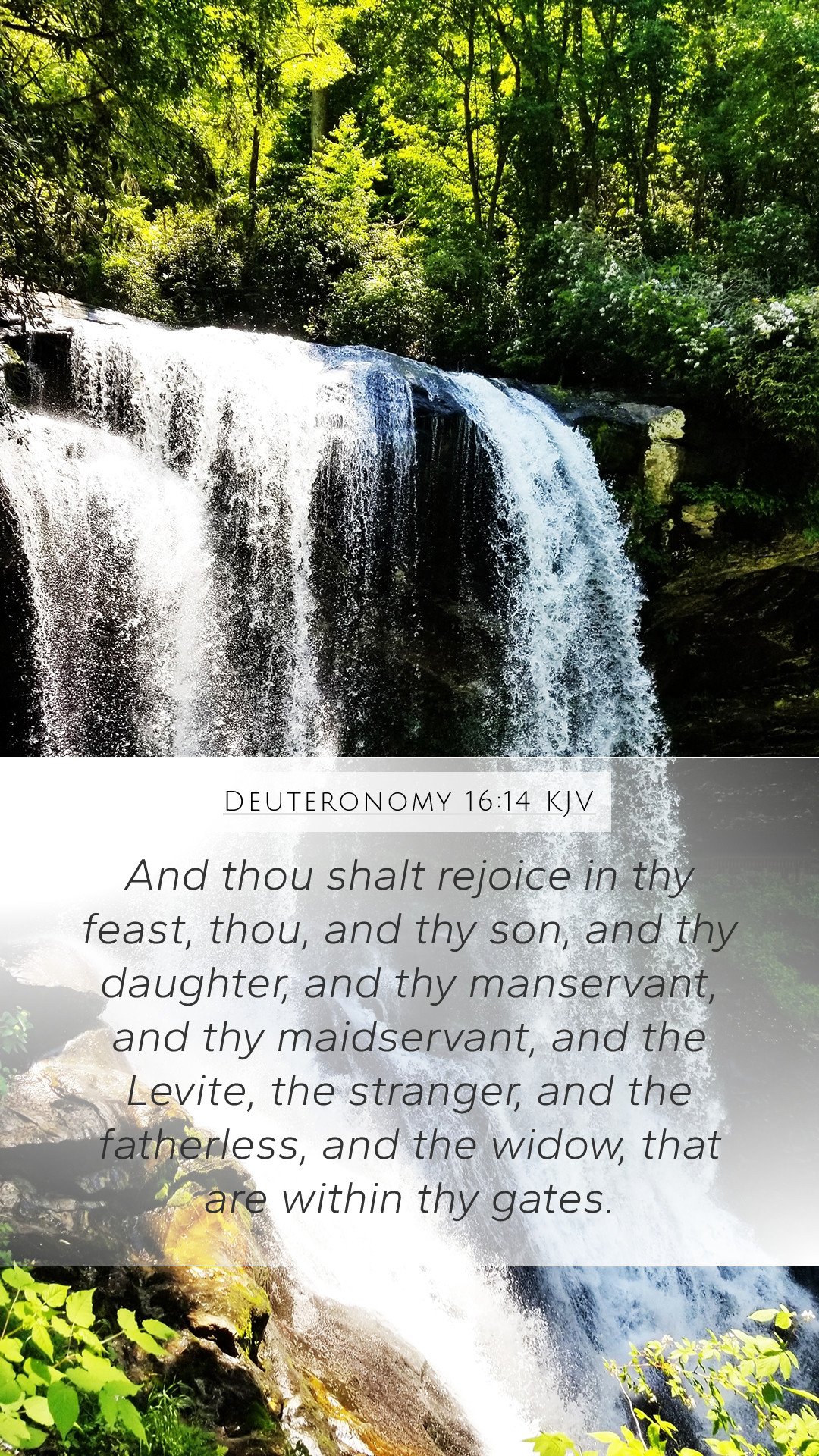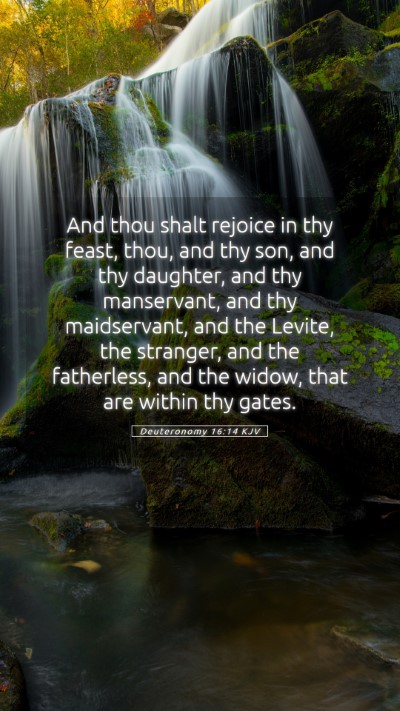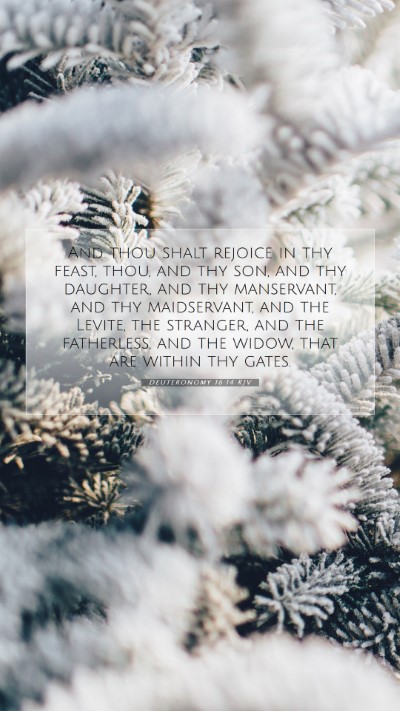Understanding Deuteronomy 16:14
Deuteronomy 16:14 states, "And you shall rejoice in your feast, you and your son and your daughter, your male servant and your female servant, and the Levite, the stranger, and the fatherless and the widow who are within your towns." This verse emphasizes the importance of joy and inclusion during the communal celebrations that God commanded the Israelites to observe.
Bible Verse Meanings
The command to rejoice reflects the joyous nature of worship and celebration in the community of God's people. Here, the concept of joy is not just personal but communal. It invites everyone, from family members to servants and the marginalized, to partake in the festivities.
Bible Verse Interpretations
Matthew Henry highlights this passage as a call to remember that blessings are to be enjoyed together. He emphasizes that God desires His people to celebrate not only for Himself but also in remembrance of His provisions. Albert Barnes also comments on the significance of inclusivity, noting that the strong must not forget the weak, ensuring all share in God's blessings. Adam Clarke adds that this commandment promotes unity and community welfare, emphasizing that the joy of the feast should extend to all, thus promoting social consciousness and charity.
Bible Verse Understanding
This verse is rooted in a broader theological understanding of God's character as one who calls His people to rejoice amidst His provisions. It echoes themes found throughout Scripture concerning the nature of God’s people and their gatherings.
Bible Verse Explanations
- Inclusivity: The verse emphasizes that all members of society, especially those who are marginalized, should experience God's joy.
- Celebration of God's Goodness: The need to rejoice is tied to remembrance of God’s goodness and the blessings He has bestowed upon His people.
- Community Bonding: The call to rejoice collectively encourages community building and strengthens relationships among God's people.
Bible Verse Commentary
This verse serves as a reminder of the social dimension of faith. The communal aspect suggests that church gatherings and celebrations should always include those who might typically be overlooked. The act of rejoicing becomes a form of witness to God's inclusivity.
Scripture Analysis
The historical context of Deuteronomy reveals that these commands were given to the Israelites as they prepared to enter the Promised Land. God’s laws were meant to not only govern their behavior but cultivate a wise and just society characterized by joy and inclusivity.
Biblical Exegesis
When performing biblical exegesis on this verse, one can focus on its role within the narrative of Israel's journey. It highlights the transition from individualism to community, showcasing that God’s blessings are not merely for personal enjoyment but are meant to be shared.
Bible Study Insights
For those studying this verse in Bible study groups, consider discussing how joy can be reflected in our celebrations today. The call to include the marginalized also challenges contemporary practices in settings such as online Bible study or communal gatherings.
Additional Bible Cross References
- Leviticus 23:40: Celebrate the feast of Tabernacles with joy.
- Psalm 68:3: Let the righteous be glad and rejoice before God.
- Isaiah 56:6-7: God's house shall be a house of prayer for all people.


